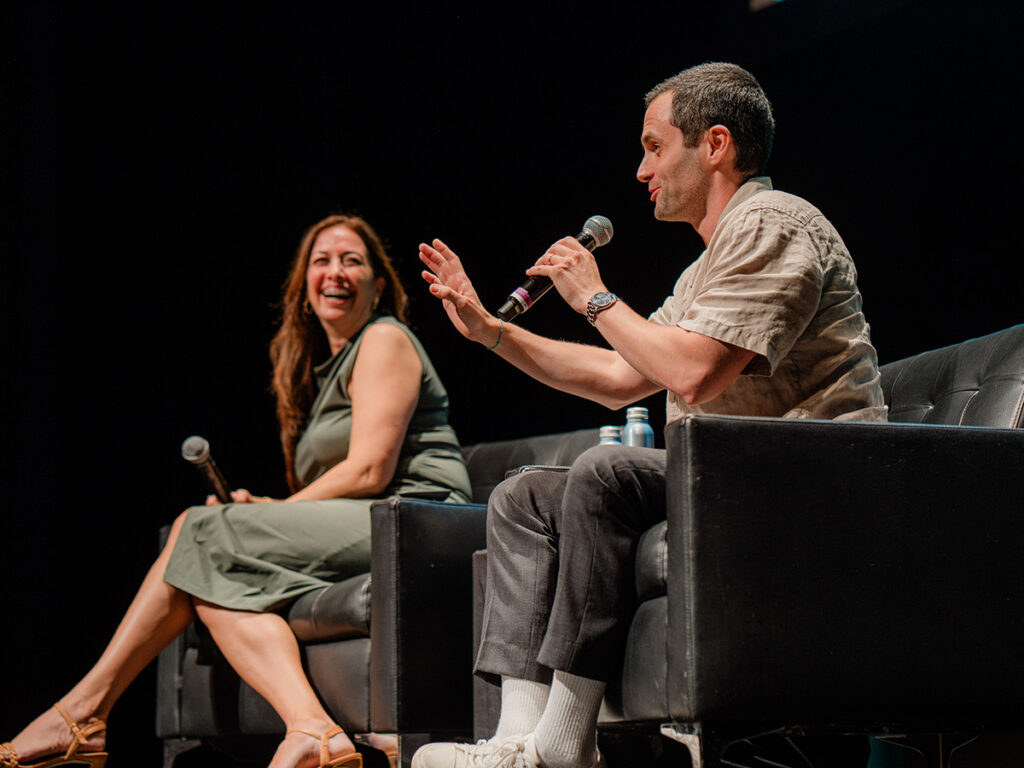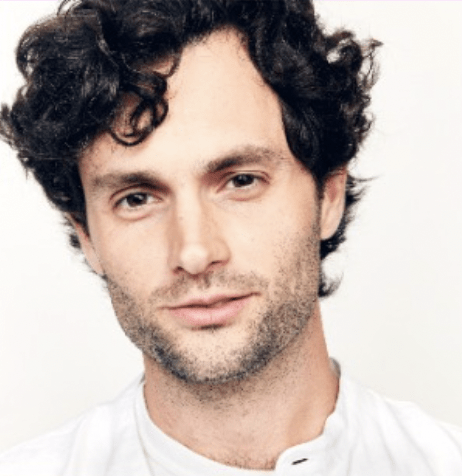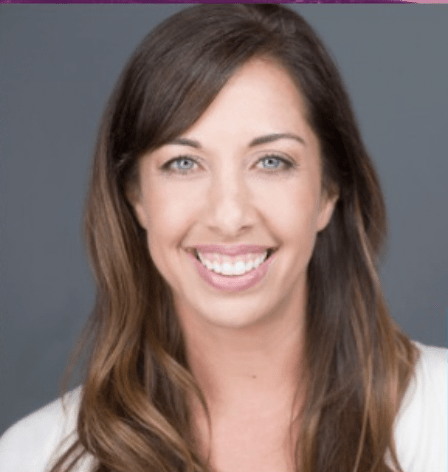EmersonTogether: Actor Penn Badgley, Dr. Nura Mowzoon Discuss the ‘Villain’ Narrative in Hollywood, Life

Actor Penn Badgley and relationship therapist Dr. Nura Mowzoon led a discussion with the Emerson community about the impact of media and psychology on everyday relationships as part of the College’s EmersonTogether initiative.
The event, part of Badgley and Mowzoon’s Can We Talk? discourse series, took place at the Cutler Majestic Theatre on October 16. The series promotes thoughtful dialogue to reduce societal polarization, encouraging participants to examine how media influences human interactions.

“Our belief is that social change happens when we can have meaningful conversations with people,” said Badgley, best known for his role as Dan Humphrey on Gossip Girl. “Which is why we try to make this [event] as much of a dialogue as possible.”
Mowzoon said that as a professor at Arizona State University, she realized how much students’ views on relationships were shaped by what they’ve seen in the media.
“And who better to talk about that with than Joe Goldberg,” she joked, referring to Badgley’s character on the show You.
Badgley talked about how villains impact societal perceptions of relationships, creating an “other” that reflects how narratives shape our views of those who differ from us.
“Hollywood has been exploiting storytelling to the world for the last 100 years in the most compelling fashion, and you are inheriting the culture. It has had this incredible influence on the way we imagine relationships to function, and has led us to constantly imagine an ‘other,’” said Badgley.
“We are perceiving an antagonist that is more in our own minds than is what’s out in the world. There is really no ‘other’, so what does that mean? Why are we creating this concept of the ‘other’ in our mind? Who is the enemy? What are we really afraid of?” he asked.

Mowzoon offered a psychological perspective on division and society’s tendency toward it.
“The most universal fundamental ability you have is to connect. This is a primary, universal need that arises from our nature as humans and serves as our strongest drive,” Mowzoon said. “Often, you can’t identify a ‘them’ without simultaneously recognizing an ‘us,’ and this sense of belonging amplifies our motivations for division, as it helps us feel more aligned with those we identify with at that moment.”
She added that by labeling the “other” as a villain, we create a framework in which heroes and villains coexist.
“You can’t have the villain without having the hero, and this is one of the most basic principles of media,” said Mowzoon.
Badgley and Mowzoon emphasized the importance of fostering meaningful conversations, focused on speaking and listening openly, despite the increasingly volatile public discourse.
“We really want to explore what becomes possible when we can speak without fear, and listen without defensiveness,” said Badgley.
Mowzoon said it’s a lot easier to cut toxic people out of your life, but sometimes, when someone makes you uncomfortable, you need to reflect on why they make you uncomfortable.
“Adapt to being uncomfortable because the world is full of people who aren’t going to make you feel warm and fuzzy all the time,” she said.
Categories